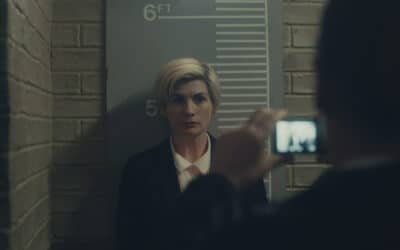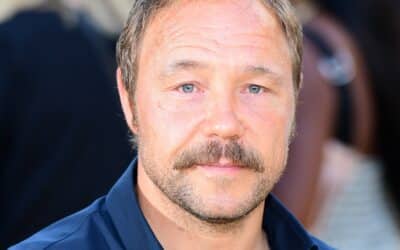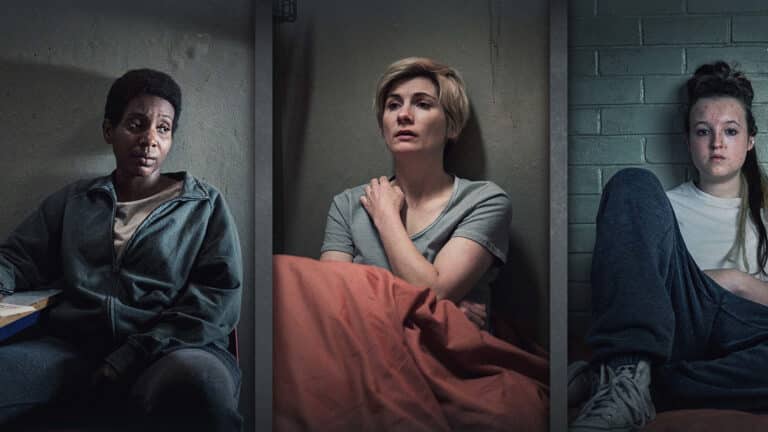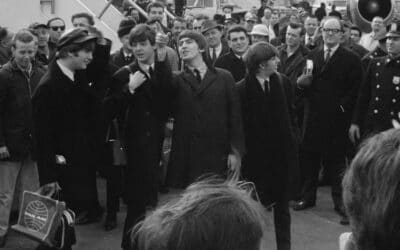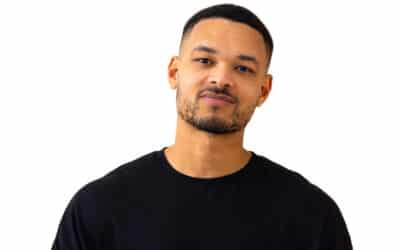The cast and crew behind the second series of Time have been speaking about the drama ahead of its return to the BBC.
Written and executive produced by Jimmy McGovern, and written by Helen Black, the drama tells the story of a women’s prison through 3 very different inmates.
“There’s only one wing in our prison. By ‘wing’ I mean one of those long, stone-walled corridors with cells down each side in which you can lock people away,” explained McGovern.
“In our prison, that one wing is used mainly for induction and occasionally for punishment. For the rest of the time the women are housed in large units and within them they are free to wander: to the showers, to the television lounge, to the kitchen. The front door, however, is locked.”
McGovern added that there wasn’t a VP, or “vulnerable prisoner” wing in their prison:
“By “VP” I mean ‘vulnerable prisoner’ and by ‘vulnerable prisoner’ I usually mean ‘sex offender.’ Well, if you’re a sex offender in a British women’s prison, you have to mix with the other prisoners. No matter what you’ve done, no matter how grievous your offence, you have to mix with the other prisoners. That can be dangerous.
“In our prison, and in all British women’s prisons, there are no full body searches without reasonable suspicion. That means women can hide drugs in their bodies and carry them around the prison. Many do so. Women’s bodies are more central to this drama than any other drama I have written. That’s why I needed a woman to work with. And that’s why we got Helen Black.
“Helen Black has been a joy to write with. Andrea Harkin, our Derry born director, has been wonderful. So too have been the cast and crew. It’s a tough drama, this, but it is full of love. I hope you enjoy it.”
Black explained that her recruitment to the drama came in 2022 – while on holiday.
“[…] my agent emailed saying Jimmy McGovern was planning to write season two of Time. Excellent, I thought, loved the first one. This series was going to be set in a women’s prison. Even better, I thought. Can’t wait to watch it. As such the email continued, Jimmy wanted a female writer on board and ‘would Helen be interested in having that conversation?’ It took me six seconds to say yes.
“And that’s how I found myself a few weeks later in a room above Radio Merseyside meeting one of this country’s greatest writers. A room we would return to again and again with our fabulous producers Andrew and Michael. A room where we set out to tell the stories of women serving time with integrity and brutal honesty.
“Jimmy has no room for artifice in his work, there is nowhere to hide, which is why we are all drawn to these challenging yet glittering stories. We may be watching something well beyond our own experience, but it is always the humanity that leaps out at us.
“I hope you enjoy this series. It has been a privilege and a pleasure to write it with Jimmy. We’ve laughed and we’ve cried and when you watch it, I know you will too.”
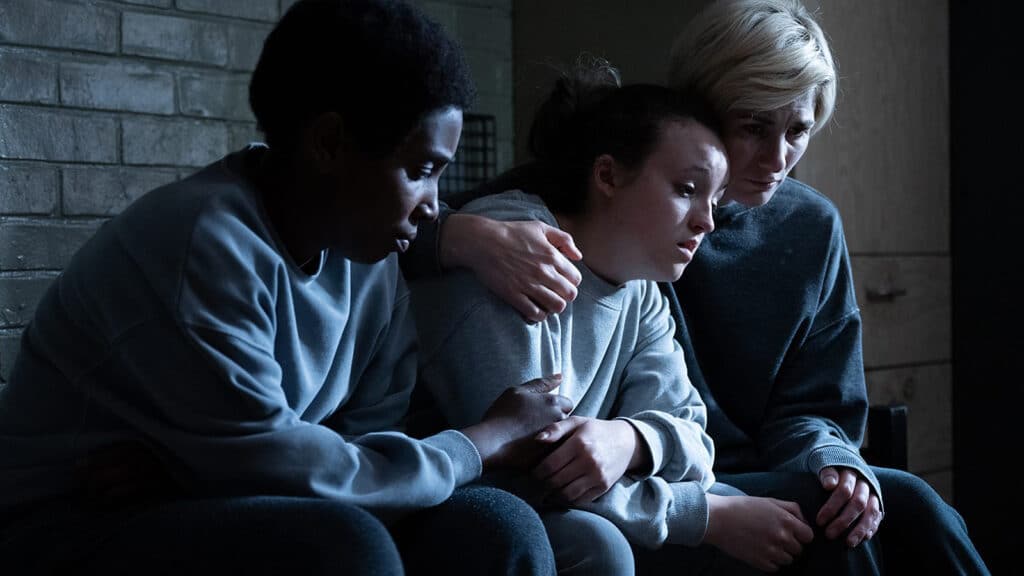
At the centre of the drama are 3 prisoners, who arrive on the same day – Orla (Jodie Whittaker), Abi (Tamara Lawrance) and Kelsey (Bella Ramsey).
Whittaker plays a single mother of 3 and she explained what made working with the writing team stand-out:
“The beauty of Helen and Jimmy’s writing is that the audience isn’t completely spoon-fed every scene. So you then have a very hard cut with them realising that she’s gone to court and is then sent down for six months,” she said.
“As an actor, whenever you’re sent any script, it’s incredibly exciting because you are sat in a position where you’re lucky enough to read all that hard work, especially when it follows something that has been so impactful, important, and of such high quality like Time series one.
“The fact that this is being told, not as a season two, but as another unique standalone piece covering different storylines and characters has been amazing. I think for me growing up, Jimmy’s writing was hugely impactful on my love of television and screen, and hearing things in a voice that I understood. And so, when he came on set, I was pathetic. You know with both Helen and Jimmy that the research has been done and we’re in safe hands. There’s an incredible ensemble of stories and I felt very lucky to be on set.”
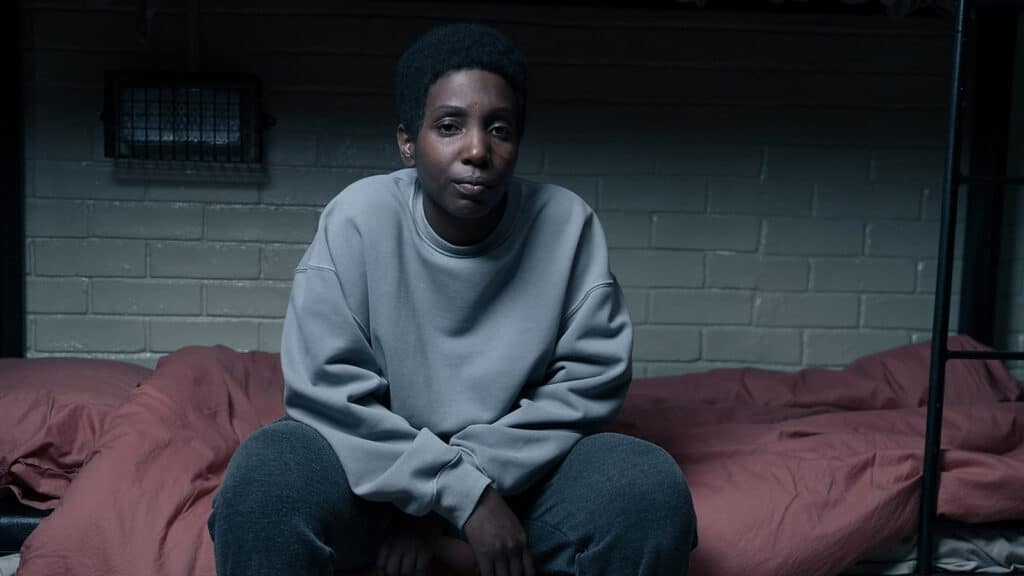
Tamara Lawrance said the production felt different because of the women working both in front of and behind the camera.
“It is a lot. It’s a lot for everyone. I think the crew have expressed that they’ve been affected by every storyline as well. I’m grateful that there’s a cast full of people that are compassionate, understanding and also very funny.
“On jobs where the subject matter is really heavy, there’s often lots of levity in other areas because you have to find things to laugh about to shake it off. There’s a lot of support and admiration in the cast. I think we all learnt from each other and enjoyed the bits in between the takes.”
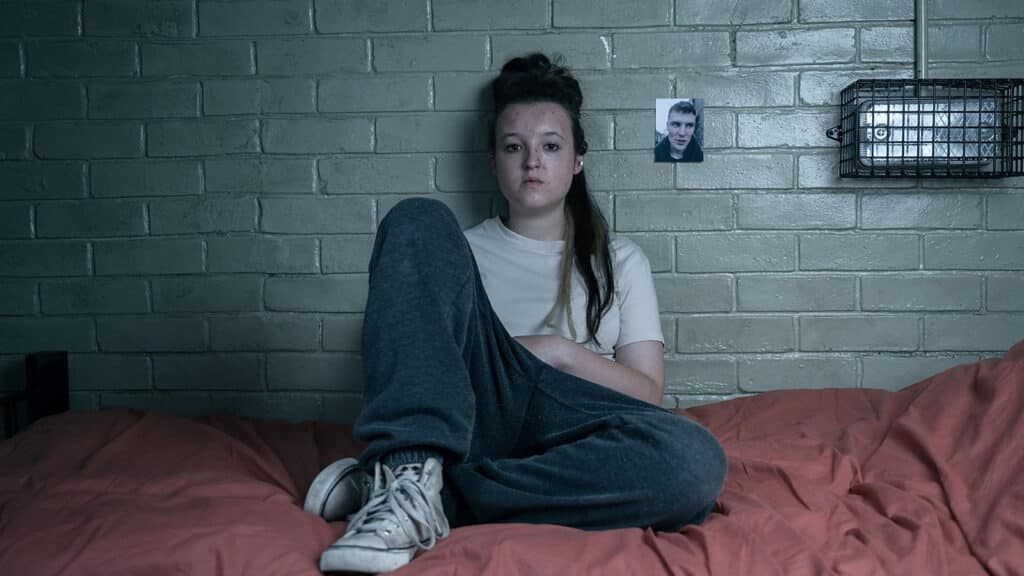
Bella Ramsey, who plays Kelsey Morgan also touched on the “bits in between the takes.”
“There have been a lot of traumatic scenes on this and they stick in my mind because of how gruelling they were, but also how supported and safe I felt during all that. It’s also fun between takes, I think when something really funny happens during a really emotional scene it’s 1000 times funnier than it would be at any other time – the moments where you shouldn’t laugh are just the funniest. What I love about doing this is that every take you find something different. The Time storylines are so real and alive and the stakes are so high,” she said.
“I’m quite good in between takes, I’m good at not carrying things with me. One of the things that I’ve done since I started in this industry is, after an emotional scene, as soon as they say cut I pull a stupid face or do a massive smile to let everybody know I’m fine. With the bigger, more physical scenes, it’s much easier to snap in and out of because you have so much adrenaline. But with the more quiet and introspective, ones, I really tried to stay in a bit more.”
Whittaker, Ramsey and Lawrence also reflected on why it was important to tell the stories featured in Time:
“When you’re in something, not in the narcissistic sense, but you hope what you individually do contributes to a bigger thing, which is hold up your end and make sure the truth of this person’s storyline is delivered in the best possible way,” said Whitaker.
“Knowing the impact that Time series one had, it gives a window into something that has no window. People who have no experience of prison have a very strong idea about it… Hopefully this humanises a situation that any of us could be, every single privileged person in this room could be in this situation.”
Ramsay added:
“We can have biases and we think about people in prison, but it’s so complex. I think just understanding how complicated everything is, nothing’s linear, nothing’s black and white. Just seeing that and respecting everybody’s individual story is so important.”
“I think we’re led to believe it’s a moral issue, people in prison are bad and people who are not in prison are good – when actually, victim and perpetrator are two sides of the same coin when it comes to people in here. It’s important to understand that,” said Lawrence.
The drama was written and executive produced by Jimmy McGovern, and written by Helen Black and Directed by Andrea Harkin.
The Executive Producers are Priscilla Parish, Michael Parke and Andrew Morrissey for BBC Studios, Lucy Richer for the BBC and Reemah Sakaan and Stephen Nye for BritBox North America.
It was Produced by Mark Hedges.

